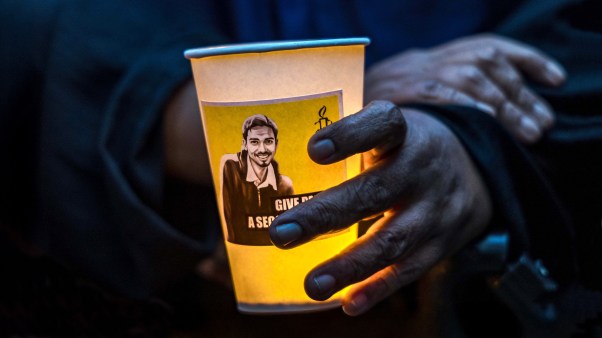When a government bans funerals because they are too depressing, you know it is in trouble. North Korea is in very serious trouble. It is entering the second year of a famine caused by severe flooding, which destroyed 890,000 acres of cropland (CT News, Nov. 11, 1996, p. 96). Add to that the failed agricultural policies of the Soviet-style government, and you have an isolated country of 23 million people down to a ration of half-a-bowl of rice per person per day.
There are reports that many communities are without dogs and cats, because pets have been consumed for food. There are even isolated reports of cannibalism. To supplement the meager ration of rice, people are eating a weak gruel made from tree bark. And some experts predicted that by the end of April the country’s food supply could be completely depleted, resulting in mass starvation.
We are reading very little about this on the front pages of our newspapers, however. North Korea is a closed society with no reporters to record for the world the people’s desperate plight. Besides, North Korea is the “other Korea,” one of the most ethnically homogeneous countries in the world—a country that reminds many Americans, Christians included, of a nagging past we would like to forget: of a war we couldn’t win, in which 33,651 Americans lost their lives, and of a Cold War that we would call “history” were it not for tenacious pockets of communism like this one.
The U.S. government’s initial response to the crisis, therefore, has been tepid. Typically, in a famine like this the U.S. supplies one-third of the food needed, according to World Vision. But the U.S. has supplied only 1 percent of the food aid North Korea says is needed.
“People find ways of surviving the first year of a famine,” says World Vision’s Bob Seiple. “It is in the second year that they die. First the very young children, followed by pregnant women and nursing mothers, and finally, the sick and the elderly. They die first because, physically, they are the most vulnerable. Politically, they also are the most powerless.”
In an ironic twist, Ronald Reagan, the supreme Cold Warrior, proclaimed a “hungry child” doctrine during the Ethiopian famine in the early 1980s that “a hungry child knows no politics”—that the poor and the weak should not have to starve due to the policies of their government. But the current administration, with a President who opposed a different Asian war in his student days, and the Republican-controlled Congress seem to be withholding food in order to punish North Korea for its isolationism and occasional belligerence. “USAID has the food aid,” claims Andrew Natsios, who ran famine relief efforts during the Bush administration; “it simply has been prohibited from using it” due to opposition from the South Korean government.
Fortunately, Christian relief organizations like World Vision, Caritas, Church World Service, Mennonite Central Committee, and other humanitarian aid groups are providing food, medicines, and seeds to help the country get through its immediate crisis. In this case, World Vision has a special sense of mission since the organization was begun in Korea 47 years ago by Bob Pierce. By providing food aid for the North Korean famine, World Vision is serving the children and grandchildren of the people for whom their organization was founded.
Christians can support these relief organizations with contributions, let our government know that we don’t believe food should be used as a weapon, and pray for the well-being of the people of North Korea.
As Seiple put it: “Jesus Christ has a heart for the sick, the oppressed, and the downtrodden, no matter what their politics, no matter where they live, no matter who they are.” Our Lord would have us use our mouths to speak for the hungry and to put some of our food where the hungry mouths are.
Copyright © 1997 Christianity Today. Click for reprint information.










